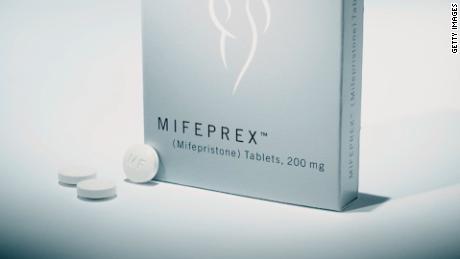“There is so much misinformation, so many myths about abortion. Abortion will lead to substance abuse, depression, suicidal thoughts; abortion is bad for your health; all women will regret it,” said social psychologist Brenda Major, Distinguished Professor emerita in the department of psychology and brain sciences at the University of California, Santa Barbara.
Women who had a first-trimester abortion were no more likely to have mental health problems than women who continued with an unplanned pregnancy, the APA review concluded.
The research also found no difference in mental health outcomes between an abortion in the first trimester and an abortion later in the pregnancy.
disinformation sources
“There were states where women were told that because they were going to have an abortion, they were at increased risk for depression, suicidal ideation, post-traumatic stress disorder and more,” said Julia Steinberg, an associate professor of science at the family at the University of Maryland School of Public Health.
“Abortion doesn’t cause depression, it doesn’t cause suicide (or) suicidal ideation. It doesn’t cause substance use. It doesn’t cause anxiety disorders,” said Steinberg, who has studied the impact of abortion on mental health for years.
In fact, the best predictor of not doing well after an abortion was a “prior history of mental health problems,” Major said. “The best predictor of post-abortion substance use was whether you were already abusing substances, and the best predictor of post-abortion depression was whether you had been depressed before having one.”
Misinformation about abortion also comes from studies published in academic journals that conclude abortion causes mental health problems, experts say.
“The studies make it sound like there’s a debate, but what’s really going on is that these studies are very poorly done,” Steinberg said. “They are not methodologically rigorous and do not adhere to scientific principles.”
The 2008 APA task force issued a scathing rebuke of the research quality of many studies that found mental health problems after abortion. Studies often failed to control for factors such as rape, intimate partner or sexual violence, or a woman’s history of prior mental disorders or substance abuse.
“We reviewed all the legitimate studies that had been done on this topic,” Major said. “The methodological flaws in so many of the studies cited as showing harm to women’s mental health as a result of having an abortion were simply appalling.”
However, this belief that abortion harms women’s mental and physical health has been used to justify “waiting period laws, two-trip requirements (in which women must return twice), and providing women with inaccurate information about medical abortion,” Steinberg said.
Being denied an abortion
The Turnaway Study also looked at the short-term and long-term impact of being denied an abortion. Results showed that women who were rejected were more likely to experience significant anxiety and stress.
“And then, the minute an abortion is denied, those symptoms escalate even more. And then, over time, they dissipate,” said Briggs, an associate professor at UCSF.
After five years, the study found that women who were denied an abortion were more likely to “live in poverty and experience economic hardship, including more bankruptcies, debt, and challenges meeting life’s basic necessities.” Briggs said.
Women who were rejected were also more likely to be tied to a violent and abusive partner and to have chronic health conditions, Briggs said. “They also lowered their aspirations (for the future) and were less likely to achieve them,” she added.
If a woman who was denied an abortion had children under the age of 5, those children were less likely to meet their developmental milestones, more likely to live in poverty and less likely to have bonded with their mother, the study found.
Will these results affect more women now that Roe v. Wade?
“I am completely overwhelmed with concern,” Briggs said. “I am concerned that people will be able to get the care they want. Some will have to overcome a lot of hurdles to access care.
“Then there are some women I’m concerned about who are using other, less safe methods to self-monitor pregnancies or carry to term a situation that they feel is not ideal for them,” Briggs said.
.


